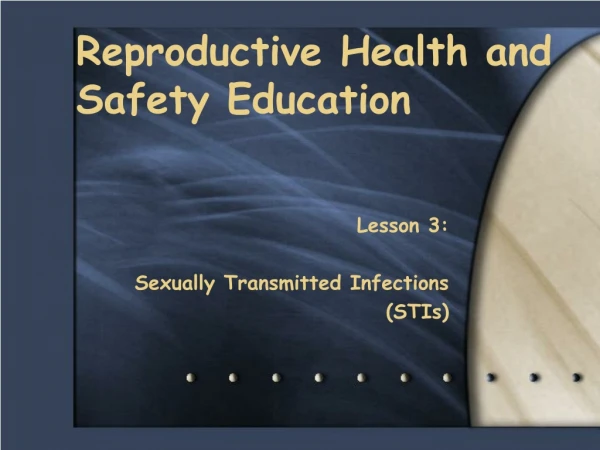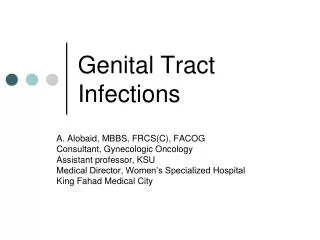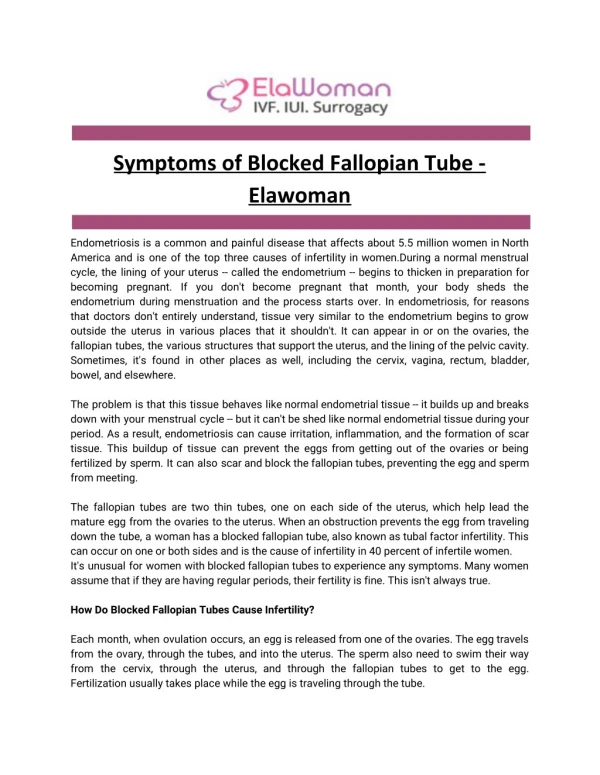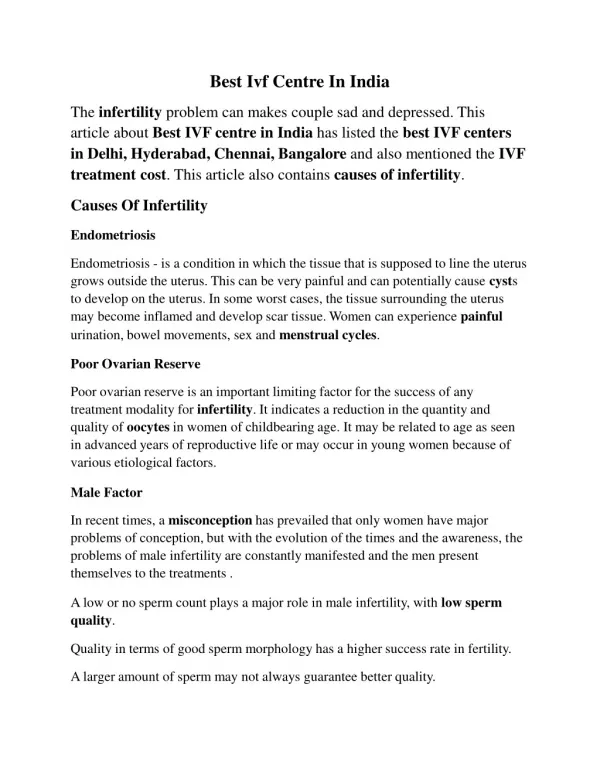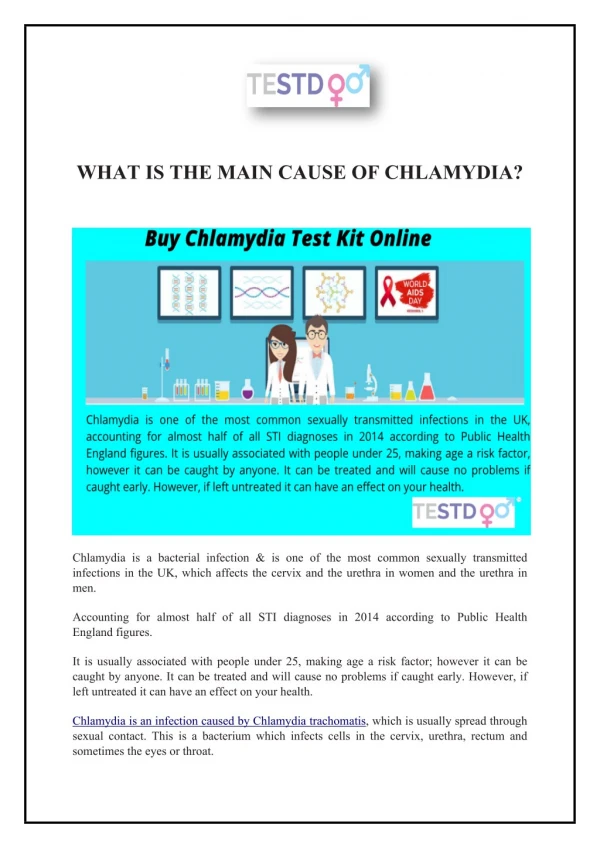Symptoms of Blocked Fallopian Tube - Elawoman
Endometriosis is a common and painful disease that affects about 5.5 million women in North America and is one of the top three causes of infertility in women.During a normal menstrual cycle, the lining of your uterus -- called the endometrium -- begins to thicken in preparation for becoming pregnant. If you don't become pregnant that month, your body sheds the endometrium during menstruation and the process starts over. In endometriosis, for reasons that doctors don't entirely understand, tissue very similar to the endometrium begins to grow outside the uterus in various places that it shouldn't. It can appear in or on the ovaries, the fallopian tubes, the various structures that support the uterus, and the lining of the pelvic cavity. Sometimes, it's found in other places as well, including the cervix, vagina, rectum, bladder, bowel, and elsewhere. The problem is that this tissue behaves like normal endometrial tissue -- it builds up and breaks down with your menstrual cycle -- but it can't be shed like normal endometrial tissue during your period. As a result, endometriosis can cause irritation, inflammation, and the formation of scar tissue. This buildup of tissue can prevent the eggs from getting out of the ovaries or being fertilized by sperm. It can also scar and block the fallopian tubes, preventing the egg and sperm from meeting. The fallopian tubes are two thin tubes, one on each side of the uterus, which help lead the mature egg from the ovaries to the uterus. When an obstruction prevents the egg from traveling down the tube, a woman has a blocked fallopian tube, also known as tubal factor infertility. This can occur on one or both sides and is the cause of infertility in 40 percent of infertile women. It's unusual for women with blocked fallopian tubes to experience any symptoms. Many women assume that if they are having regular periods, their fertility is fine. This isn't always true.
★
★
★
★
★
186 views • 7 slides






